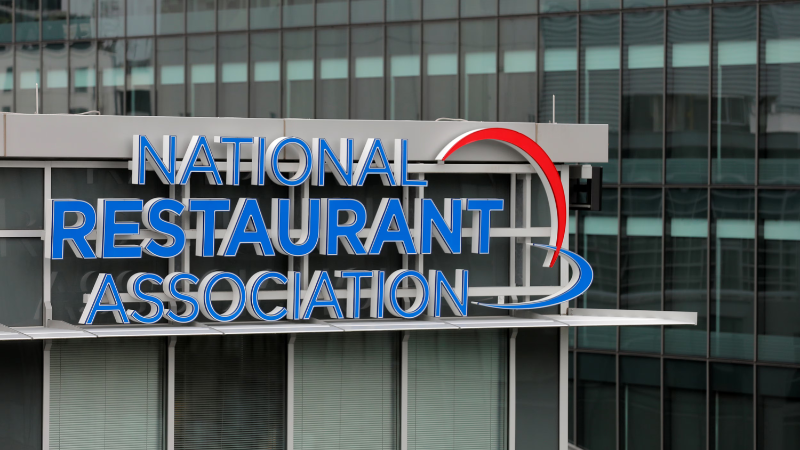
CHICAGO, July 31, 2025 — With President Trump’s so-called reciprocal tariffs about to take effect, the National Restaurant Association has formally requested that imported foods and beverages be exempted from the protective duties.
“We agree that our trade deficits with other countries should be more balanced, but as food and beverage products do not significantly contribute to these deficits, we are hopeful that these products can be exempt,” Sean Kennedy, the association’s EVP of public affairs, said in a letter to U.S. Trade Representative Jamieson Greer.
The letter also asks that a current exemption for Mexican and Canadian foods and beverages covered under an earlier trade agreement not be lifted. By some estimates, the products shielded under the U.S.-Mexico-Canada Agreement (USMCA) account for 80% of the edible items imported from the United States’ neighbors to the north and south.
Lifting the exemption and subjecting the supplies to the 30% tariff set for other Mexican and Canadian imports would cost the U.S. restaurant industry $15.16 billion, which translates to a 33% cut in profits for a typical small establishment, Kennedy wrote.
The USMCA extends to such items as avocados, cooking oils, and flour, among a host of other restaurant staples. Many "cannot be grown or produced domestically,” Kennedy noted.
The letter also warns that restaurants would severely suffer if individual trade deals are not struck with such major sources of supplies as Brazil. He singled out the likely impact on beef supplies, which “are already at record highs and impact menu prices on items like hamburgers, tacos, and more.”
The letter to Greer, the President’s principal advisor on international trade, came as Trump is adjusting his tariff plan in anticipation of an Aug. 1 imposition date. The Chief Executive indicated that he may raise the base tariff applicable to most imported goods to 15%, from a current level of 10%.
The White House has also given indications that the Administration is unlikely to postpone enactment again, as it did in July, pushing back the start date by about three weeks. But, days after airing those signals, it announced that it would grant Mexico a 90-day delay on the imposition of higher fees.
On the eve of the Aug. 1 start date, a federal appeals court began hearing the Administration’s appeal of a May ruling by the U.S. Court of International Trade that President Trump lacked the authority even under his emergency war powers to impose the trade duties. That ruling in effect said the tariffs should be voided, but the U.S. Court of Appeals for the Federal Circuit left 10% duties in place, and allowed the negotiation of much-higher reciprocal tariffs to continue, until it could issue a final ruling.
If it were to uphold the International Trade Court’s ruling, the tariffs would be vacated. But it is doubtful the appeals court will issue any ruling before tariffs are implemented on Friday.
The restaurant association’s letter takes a supportive tone. “On behalf of America’s restaurants, I write to commend the administration’s efforts to create a more balanced and fair-trade environment,” Kennedy wrote in opening the communication.
The missive echoes the statement issued by the restaurant association immediately after President Trump proposed his aggressive tariff policy on what he termed “Independence Day” The April 1 comment from association CEO Michelle Korsmo noted that restaurants are still contending with a 40% increase in food costs during the last five years.
As Managing Editor for IFMA The Food Away from Home Association, Romeo is responsible for generating the group's news and feature content. He brings more than 40 years of experience in covering restaurants to the position.